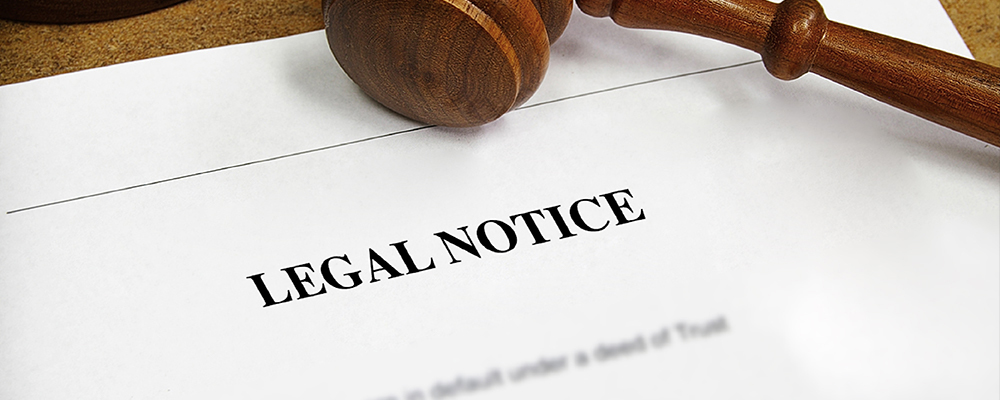Introduction
Welcome to our comprehensive guide on legal notice formats, designed to assist you in effectively communicating important information in a legally compliant manner. In this article, we will provide you with an in-depth understanding of the elements that constitute an effective legal notice, while offering valuable insights and recommendations to help you outrank your competitors and enhance your visibility on search engines.

What is a Legal Notice
A legal notice is a written communication issued by an individual or a legal entity to another party to inform them of a legal action, demand, or intention. It serves as a formal way to communicate legal matters and is typically used to assert rights, seek remedies, or give notice of potential legal consequences
A legal notice usually includes specific details such as the names and addresses of both the sender and the recipient, a clear description of the issue or dispute, the legal basis for the notice, and any relevant deadlines or actions required by the recipient. It is important for a legal notice to be clear, concise, and accurate to ensure that the recipient understands the implications and can respond accordingly.
Understanding Legal Notices
A legal notice is a formal document used to communicate legal information to individuals or organizations. It serves as a means to officially notify recipients about specific legal matters, such as contract terminations, copyright infringement, or debt recovery. Crafting a well-structured and legally sound legal notice is crucial to ensure the intended message is effectively conveyed and understood.
Table of Contents
Key Elements of an Effective Legal Notice
1. Clear and Concise Language
When drafting a legal notice, it is imperative to use clear and concise language that is easily comprehensible to the recipient. Avoid using complex legal jargon that may confuse or alienate the reader. Instead, opt for a more straightforward approach, ensuring that the purpose and implications of the notice are clearly conveyed.
2. Proper Heading and Format
The heading of your legal notice should include pertinent information, such as the name and contact details of the sender, the recipient, and the subject matter. Ensure that the format adheres to legal standards and conventions, employing appropriate fonts, spacing, and alignment.
3. Specific and Accurate Details
A well-crafted legal notice should contain specific and accurate details regarding the legal matter at hand. Include dates, relevant references, and any other pertinent information that will assist the recipient in understanding the context and importance of the notice.
4. Compliance with Legal Requirements
To ensure the validity and enforceability of your legal notice, it is essential to adhere to the legal requirements and regulations of your jurisdiction. Familiarize yourself with the specific laws and regulations governing legal notices in your region to avoid any potential pitfalls.
Understanding the Legal Notice Format
The format of a legal notice may vary depending on the nature of the communication and the jurisdiction in which it is being used. However, there are certain common elements that are typically included in most legal notices. These elements include:
- Heading: The heading of the notice should clearly indicate its purpose and the parties involved.
- Introduction: Begin the notice with a concise introduction, providing an overview of the legal matter at hand.
- Body: The body of the notice should contain detailed information regarding the issue, including specific facts, dates, and references.
- Conclusion: Conclude the notice with a clear statement of the desired action or response from the recipient.
- Contact Information: Include the sender’s contact information to facilitate further communication or clarification.
Conclusion
Crafting an effective legal notice is crucial for ensuring the proper communication of legal matters. By following the guidelines and format outlined in this comprehensive guide, you can enhance your ability to outrank competitors and improve your visibility on search engines. Remember to tailor your legal notice to comply with the specific legal requirements of your jurisdiction and seek professional legal advice if needed.
Remember, the quality and relevance of your content are vital for ranking higher on search engines. Implementing the best practices outlined in this article will help you create a legal notice that stands out, effectively communicates your message, and helps you achieve your desired search engine rankings.
Best of luck in your endeavors!
